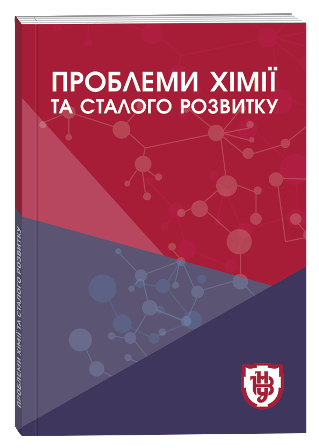ANTHROPOGENIC IMPACT OF WAR ON WATER RESOURCES: ANALYSIS AND POTENTIAL RECOVERY PATHWAYS
DOI:
https://doi.org/10.32782/pcsd-2024-3-7Keywords:
environmental security, military activity, water resources, anthropogenic pollution, ecosystem restorationAbstract
The article examines the consequences of the anthropogenic impact of military actions on water resources in the context of the war in Ukraine. Special attention is given to the analysis of environmental threats caused by the intensive use of heavy machinery, explosive processes, and the release of toxic substances into aquatic ecosystems. The study focuses on the chemical pollution of water resources caused by the destruction of infrastructure, particularly water supply and sewage systems. The paper also provides an analysis of specific physicochemical processes occurring due to changes in hydrodynamic conditions and the redistribution of pollutants in water bodies. The main mechanisms of migration of heavy metals, petroleum products, toxic chemicals, and explosive substances through the hydrosphere are examined. Attention is paid to the direct and indirect consequences for biodiversity in aquatic ecosystems and human health. The authors provide a detailed analysis of the impact of military actions on groundwater, including changes in their chemical composition and potential long-term consequences for drinking water quality. Issues related to the disruption of natural hydrological cycles due to the destruction of dams, locks, and other hydraulic structures are also considered. The article highlights the potential risks of transboundary water pollution and the need for international cooperation in addressing these problems. Potential methods for rehabilitating water systems are separately highlighted, including comprehensive ecological approaches to cleaning, remediation of polluted water bodies, and restoration of hydrological balance. The authors propose innovative water purification technologies, such as the use of nanofiltration and bioremediation, and discuss the possibilities of applying nature-based solutions for the restoration of aquatic ecosystems. The article proposes the development of a comprehensive strategy to reduce the negative impact of war on water resources, as well as recommendations for improving environmental policy and water management in the post-military period. Special attention is paid to the issues of monitoring and assessing the state of water resources in the post-conflict period, as well as the development of long-term programs for the restoration and protection of aquatic ecosystems. The authors emphasize the importance of integrating environmental aspects into post-war reconstruction processes and the need to strengthen the legislative framework for the protection of water resources in the context of national security.
References
Alpatova O., Maksymenko I., Patseva I., Khomiak I., Gandziura V. Hydrochemical state of the post-military operations water ecosystems of the Moschun, Kyiv region. 16th International Conference Monitoring of Geological Processes and Ecological Condition of the Environment. 2022. P. 1-5. DOI: 10.3997/2214-4609.2022580145.
Institute for the Study of War. Interactive Map: Russia's Invasion of Ukraine. 2022. URL: https://storymaps.arcgis.com/stories/36a7f6a6f5a9448496de641cf64bd375 (дата звернення: 26.09.2024).
Кірейцева Г., Циганенко-Дзюбенко І., Замула І., Демчук Л. Аналіз стану та моніторинг поверхневих водних об'єктів Чернігівської області. Вісник Кременчуцького національного університету імені Михайла Остроградського. 2024. Вип. 1(144). С. 84–91.
Kireitseva H., Šerevičienė V., Zamula I., Khrutba V. Internal and external factors of use and conservation of water resources in Zhytomyr region. Journal Environmental Problems. 2024. Vol. 9, № 1. P. 43–50. DOI: 10.23939/ep2024.01.043.
Пацева І. Г., Алпатова О. М., Демчук Л. І., Кірейцева Г. В., Левицький В.Г. Сучасний стан навколишнього природного середовища в умовах впливу війни. Екологічні науки : науково-практичний журнал. 2022. Вип. 4 (43). С. 19–22.
Khilchevskyi V. K., Grebin V. V., Bolbot H. V. River Basins Districts of Ukraine – Comparison with the Map of Russia's Armed Aggression (Summer 2022). 16th International Conference Monitoring of Geological Processes and Ecological Condition of the Environment. 2022. P. 1–5. DOI: 10.3997/2214-4609.2022580017.
Хом'як І. В., Брень А. Л., Медвідь О. В., Хом'як А. К., Максименко І. Ю. Динаміка рослинності суходолу на території кар'єрів як модель постмілітарного відновлення дикої природи. Український журнал природничих наук. 2023. №5. С.61–69. DOI: 10.32782/naturaljournal.5.2023.7.
Tsyhanenko-Dziubenko I., Kireitseva H., Demchuk L. Dynamics of Heavy Metal Compounds Allocation in Urbohydrotops of Kyiv Region in Post-Military Conditions. 17th International Conference Monitoring of Geological Processes and Ecological Condition of the Environment. 2023. Vol. 1. P. 1–5. DOI: 10.3997/2214-4609.2023520066.
Циганенко-Дзюбенко І. Ю., Гандзюра В. П., Алпатова О. М., Демчук Л. І., Хом’як І. В., Вовк В. М. Гідро-хімічний статус пост-мілітарних водних екосистем с. Мощун, Київської області. Екологічні науки. 2023. Вип. 1 (46). С. 53–58.
Циганенко-Дзюбенко І., Кірейцева Г. Фізіолого-біохімічні механізми стійкості Planorbarius corneus L. до впливу хімічних стресорів війни. Науковий вісник Вінницької академії безперервної освіти. Серія «Екологія. Публічне управління та адміністрування». 2023. № 4. С. 18–25. DOI: 10.32782/2786-5681-2023-4.03.
Циганенко-Дзюбенко І., Хом'як І., Кірейцева Г. Моделювання динаміки водних і прибережно-водних рослинних угруповань у пост-мілітарних умовах. Проблеми хімії та сталого розвитку. 2023. Вип. 2. С. 26–37.
Циганенко-Дзюбенко І. Ю., Кірейцева Г. В., Демчук Л. І., Скиба Г. В., Вовк В. М. Оцінка стану та фіторемедіаційного потенціалу антропогенно трансформованих гідроекосистем Малинщини. Екологічні науки. 2023. Вип. 5 (50). С. 81–87. URL: http://ecoj.dea.kiev.ua/archives/2023/5/12.pdf (дата звернення: 26.09.2024).
Tsyhanenko-Dziubenko I., Šerevičienė V., Ustymenko V. Dissecting biochemical mechanisms that mediate tolerance to military chemical stressors in diverse malacological systems. Environmental problems. 2024. Vol. 9, № 1. P. 51–58. DOI: 10.23939/ep2024.01.051.







